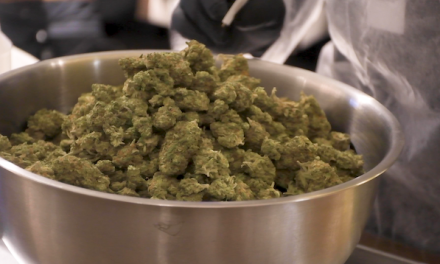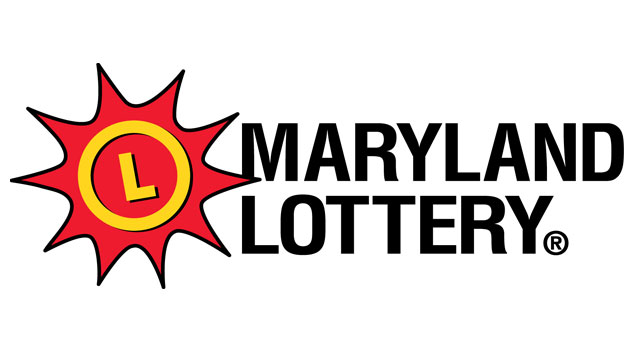By Len Lazarick
Len@MarylandReporter.com
Advocates for increased funding for Maryland transportation projects say next year’s General Assembly session is “the last chance” to get any new revenues passed.
“This is probably our last opportunity in a four-year term,” said Don Fry, president of the Greater Baltimore Committee and a former legislator. “In the third and fourth year of the legislative term we don’t see that type of initiative,” as lawmakers focus on their re-election.
Senate Majority Leader Rob Garagiola agreed. “If we don’t do it in 2012, we’re starting to get into the next election cycle.”
Garagiola and Fry were speaking at the annual GBC transportation summit, which is part of a series of fall events that supporters of more highway and transit funding hope will lead to some form of increased revenues to build roads and rail lines.
This is not a new story from Garagiola and Fry, who have pushed to increase funding for transportation in this past session and earlier years.
“There needs to be an ongoing, unrelenting stream of advocacy” by businesses and employees to lobby the governor and legislators for new revenues, Garagiola said.
Few doubts about the need
Nobody doubts the need to start long-delayed highway and transit lines, and fix decaying bridges and roads.
If the state built the major project on each county’s short list, the total cost would be $12 billion, said state Transportation Secretary Beverley Swaim-Staley. When every project backed by local jurisdictions were added up, she added, DOT officials stopped counting at $60 billion.
But “transportation still doesn’t seem to rise to the top as a priority” in the minds of the public and policymakers, Swaim-Staley said. Transportation is crucial to future economic development, but “somehow we’ve lost that (focus), and it’s not clear how we get it back.”
One obvious obstacle is that the transportation trust fund in Maryland has been raided to fund other parts of the budget, and not the projects for which it was intended. That’s why Garagiola and Fry have proposed a constitutional amendment or a law to prevent spending dollars from the gas tax and titling fees on other projects. Gov. Martin O’Malley has not been enthusiastic about the idea.
Garagiola said ex-urban and rural voters have told him, “I might be able to support a gas tax hike if I know it goes to roads.”
O’Malley’s own proposal for an inflation-adjusted gas tax was rejected in 2007.
Tax hikes make legislators nervous
Fry recognizes that “there are still many legislators skittish of any kinds of tax increases.” But he said, “The difference with the gas tax is that it creates jobs.”
That’s why William Childs, president and CEO of the concrete paving and construction firm Chaney Enterprises, would like to see the new funding invested in projects. “We’re in a depression” in the construction business with unemployment of more than 20%, Childs said. Putting money into highway construction would be “a fabulous investment.”
That’s one of the things envisioned by President Obama’s latest jobs proposal, with $50 billion set aside for infrastructure. In Maryland, that would translate into $425 million for highways and $200 million for mass transit, Swaim-Staley said. But those dollars would not be flowing into the economy quickly, since the state would have three or four years to complete the projects.
Laying out a vision
Howard County Executive Ken Ulman, this year’s president of the Maryland Association of Counties, said that a key to persuading citizens to support higher gas taxes or vehicle fees is “creating a vision that the citizens of Maryland want to invest in.”
“We’re all in this together with the state,” Ulman said. But he recognizes that tax increases in any form have become “such a polarized … partisan issue.”
Joshua Schank, head of the Eno Transportation Foundation, which was founded 90 years ago to promote safe mobility of the American public, said there also needs to be more “performance accountability” of transportation funding from the federal government. Schank said the government needed to establish specific goals the money is designated to achieve — whether it be energy saving, public safety or economic development. Citizens are “going to pay only if they can see material benefit,” Schank said.
Aileen Cho, transportation editor of Engineering News Record, said transportation advocates need to turn up the volume of advocacy, perhaps by emphasizing the problem of collapsing bridges.
“It seems like there’s a silent national majority” in the country that supports transportation projects, Cho said. “Where’s the volume at the national level?”
Transportation symposium at Morgan Oct. 11
Part of the effort to raise the volume of debate in Maryland will include a day-long Transportation Symposium at Morgan State University Oct. 11 put on by the National Transportation Center. Two Morgan professors will release their analysis of a survey they conducted of Maryland residents.
According to an abstract of the study, which is still being peer-reviewed, “Even though there is a general level of dissatisfaction with current roadway conditions, motorists tend to be reluctant to support revenue-generating initiatives, unless it is clear that the additional revenue will be used for projects aimed at improving important roadway concerns.”
The professors found the most support for raising licensing, inspection and registration fees. The public was more neutral on raising tolls and gas tax, and opposed to a general sales tax or mileage tax.






Maryland residents are already being bombarded with taxes, fees, assessments, et al. It is inexcusable to be looking at any issue, on its own. More moneys for the construction business may, at least temporarily, let the industry hire more workers (Maryland citizens?). On the other hand additional tax moneys being extracted from individuals and businesses that demand driving (in-home services, taxi’s, delivery operations) will reduce the ability of independent operators and companies to generate a livable income and contribute to the Maryland economy. The State is already appropriating moneys from state residents and businesses via a variety of means and spending (some) receipts on discretionary investments and operations. In view of the extent of our growing national debt and the state of our State debt … It is time to set priorities for spending and to cut out any expenditures that are not vital. They should be set aside until the issues of indebtedness and unemployment are back within acceptable levels. Certainly some of the transportation road and bridge repairs are of a high priority. From past experience it is CLEAR that a constitutional amendment or a law to prevent spending dollars from the gas tax and titling fees on other projects or to balance the budget is essential.
Annapolis needs to pass an air tight, lock box bill to protect all current & future monies in the transportation trust fund, then clean up the SHA’s problems before even discussing raising fuel taxes. Those of us who are paying the taxes demand a better accounting of the distribution of the fund. It cannot remain a piggy bank to balance the largess practised by governors or legislators.
Annapolis needs to pass an air tight, lock box bill to protect all current & future monies in the transportation trust fund, then clean up the SHA’s problems before even discussing raising fuel taxes. Those of us who are paying the taxes demand a better accounting of the distribution of the fund. It cannot remain a piggy bank to balance the largess practised by governors or legislators.